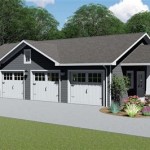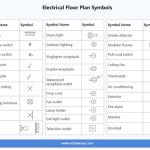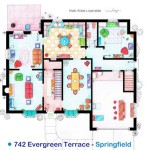Concrete Silo House Plans: A Unique and Sustainable Building Option
Concrete silos, traditionally used for agricultural storage, are increasingly being repurposed as unique and sustainable housing structures. These cylindrical structures offer a blend of rustic charm and modern design possibilities, appealing to those seeking unconventional and environmentally conscious homes.
Key Advantages of Concrete Silo Homes
Building a home from a repurposed concrete silo presents several advantages:
- Inherent Strength and Durability: Concrete silos are engineered to withstand significant pressure and harsh weather conditions, offering inherent strength and longevity to a dwelling.
- Cost-Effectiveness: Repurposing existing silos can be more economical than constructing a traditional home from scratch, particularly when considering the robust structure already in place.
- Sustainability: Utilizing existing structures reduces the demand for new building materials, minimizing environmental impact and promoting sustainable building practices.
- Unique Design Potential: The cylindrical shape of a silo offers a unique canvas for creative architectural design, allowing for distinctive and eye-catching homes.
- Energy Efficiency: Concrete's thermal mass helps regulate indoor temperatures, reducing energy consumption for heating and cooling.
Planning Considerations for Concrete Silo Homes
Careful planning is crucial for a successful silo conversion project. Several factors warrant consideration:
- Silo Size and Condition: Evaluate the silo's dimensions and structural integrity to determine its suitability for residential conversion. Professional inspection is recommended to assess any potential issues like cracks or deterioration.
- Building Codes and Permits: Research local building codes and obtain necessary permits for renovations and modifications. Compliance with regulations is essential throughout the project.
- Insulation and Moisture Control: Concrete can be prone to condensation. Proper insulation and moisture barriers are vital to create a comfortable and healthy living environment.
Design and Layout Options
The cylindrical shape of a silo lends itself to a variety of design and layout options:
- Multi-Level Living: The vertical space within a silo can be utilized to create multi-level living areas, often featuring a spiral staircase as a central design element.
- Open-Plan Design: The circular layout promotes open-plan living, creating a spacious and airy feel.
- Incorporating Annex Structures: Additional living space can be created by attaching annex structures to the silo, allowing for greater flexibility in design and functionality.
- Window Placement: Strategic window placement maximizes natural light and offers panoramic views of the surrounding landscape.
Interior Design Ideas
The interior of a silo home can be designed to complement the unique structure:
- Industrial Chic: Embrace the industrial aesthetic of the silo by incorporating exposed concrete, metal accents, and minimalist furnishings.
- Rustic Farmhouse: Soften the industrial feel with warm wood tones, natural textures, and farmhouse-style décor.
- Modern Minimalist: A minimalist approach with clean lines, neutral colors, and contemporary furniture can create a sleek and modern living space.
Exterior Finishes
Several exterior finish options can enhance the aesthetic appeal and protect the silo structure:
- Painting: Applying a weather-resistant paint can add color and protect the concrete from the elements.
- Staining: Concrete stains can enhance the natural texture of the silo while providing a durable finish.
- Cladding: Wood, metal, or composite cladding can be used to create a different aesthetic and add insulation.
Cost Considerations
The cost of converting a concrete silo into a home varies depending on several factors:
- Silo Size and Condition: Larger silos or those requiring significant repairs will naturally incur higher costs.
- Location: Building costs can vary significantly depending on the geographical location.
- Complexity of Design: More complex designs and custom features will contribute to higher overall costs.
- Materials and Finishes: The choice of materials and finishes can significantly impact the project budget.
Finding Concrete Silos for Sale
Several resources can be utilized to find concrete silos available for purchase:
- Online Marketplaces: Websites specializing in agricultural equipment and structures often list silos for sale.
- Local Farmers and Agricultural Businesses: Contacting local farmers and agricultural businesses directly can lead to opportunities for purchasing decommissioned silos.
- Demolition Companies: Demolition companies sometimes salvage silos and offer them for resale.
Converting a concrete silo into a home presents a unique opportunity to create a sustainable, durable, and visually striking dwelling. Thorough planning, thoughtful design, and careful execution are essential for a successful silo conversion project.

Floor Plans Silo House Silos

Grain Bins As Affordable Housing Natural Building Blog

How To Build A Grain Bin House Building

Grain Bin Cabin Plan

Grain Bins As Affordable Housing Natural Building Blog

Grain Bin House Plans Google Search Floor

What Is A Silo House Alternative Housing Options

Grain Bin Cabin Plan

Silo House Plan Farmhouse Country

Grain Bins As Affordable Housing Natural Building Blog
Related Posts








